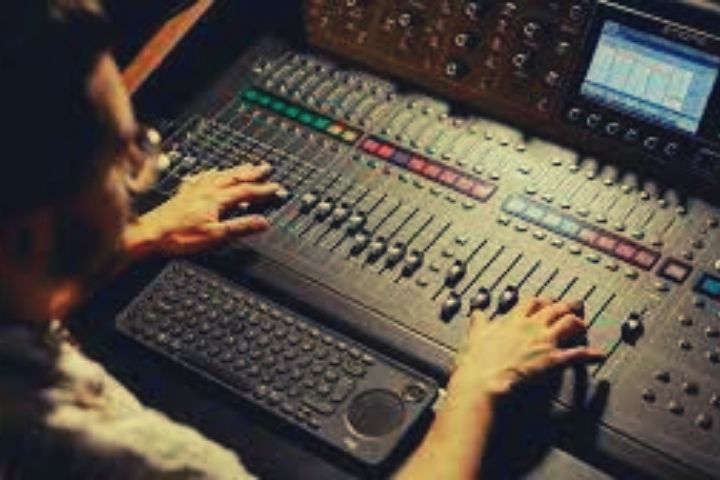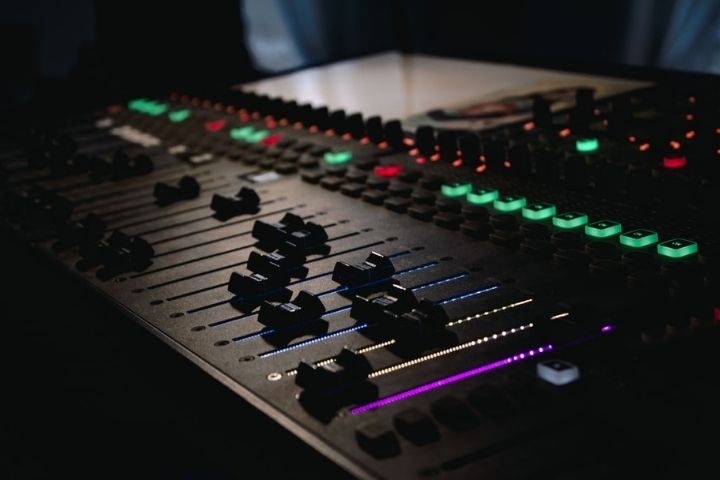What Is Audio Engineering?

Audio engineers are responsible for capturing, processing, and reproducing sound. It is a field of engineering that deals with the design and use of equipment for the recording, amplification, reproduction, and manipulation of sound. Audio engineers work for music, film, television, and radio projects. They may be involved with the design and manufacture of equipment, the installation and setup of sound systems, the operation of sound recording studios or the post-production of audio recordings. Keep reading to learn more about audio engineering below.
Table of Contents
Understanding Sound Engineering
Engineer audio is the process of recording, manipulating, mixing, and reproducing sound. It is a process that requires a great deal of skill and knowledge to create high-quality audio recordings. Audio engineers use a variety of equipment and software to achieve their desired results and must have a strong understanding of the physics of sound to make informed decisions about how to best capture and manipulate audio. This is the process of manipulating sound waves to create a desired effect. This could be anything from amplifying a voice for a public announcement to creating a unique sound for a film or music track. Audio engineers use a variety of equipment and software to achieve their goals, including microphones, mixers, and digital audio workstations. They must have a good understanding of the physics of sound, as well as the ability to listen critically and make adjustments to create the perfect sound.
History of Audio Technology

The process has a long and storied history, dating back to the early 1800s when the first audio recordings were made. Since then, it has evolved into a complex and sophisticated field, used to create and produce all manner of audio recordings. It requires a deep understanding of the principles of sound and how to manipulate them to create the desired effect.
The field of audio engineering is constantly evolving, and today’s engineers must be proficient in a variety of modern technologies. They must be able to work with digital audio workstations, audio plugins, and other tools. They must also be able to create and work with multi-track recordings, and be familiar with the latest mixing and mastering techniques.
Types of Music Production
Some common types include recording engineering, mixing engineering, mastering engineering, sound design, and live sound reinforcement. Recording engineering is the process of capturing sound and audio signals onto a storage medium, such as a CD or digital files. This type requires a good understanding of the physics of sound, as well as the ability to use audio recording software and hardware.
Mixing engineering is the process of combining multiple audio signals into a single stereo or surround soundtrack. This type requires a good understanding of the frequency spectrum, as well as the ability to use mixing software and hardware. Mastering engineering is the process of adjusting the levels and dynamics of an audio track, as well as adding effects such as audio compression. This requires a good understanding of the stereo field, as well as the ability to use mastering software and hardware.
Sound design is the process of creating sound effects and ambience for use in film, television, video games, and other media. This type requires a good understanding of psychoacoustics, as well as the ability to use sound design software. Live sound reinforcement is the process of amplifying and processing live audio signals for use in a live setting. This requires a good understanding of sound reinforcement theory, as well as the ability to use sound reinforcement software and hardware.
Tools for Music Production

Audio engineers use a variety of tools to do their job, including signal processors, mics, and more. One of the most important tools for audio engineers is a digital audio workstation or DAW. A DAW is a computer software program that allows users to create, edit, mix, and master audio files. There is a variety of DAWs available on the market, and each one has its own strengths and weaknesses.
Audio engineers also use signal processors to alter the sound of audio signals. Common signal processors include equalizers, compressors, and reverbs. Equalizers allow engineers to adjust the frequency response of an audio signal, while compressors and reverbs can be used to control the dynamic range and reverberation time of a signal, respectively.
Microphones are another essential tool for audio engineers. Some common types of microphones include condenser microphones, dynamic microphones, and ribbon microphones. Ultimately, the tools an audio engineer uses will depend on the specific project they are working on. However, the tools listed above are some of the most commonly used tools. Engineering audio is a complex process, but it is also a very rewarding one. The audio engineer is responsible for creating the sound that the listener hears. It is a challenging job, but it is also a lot of fun.






